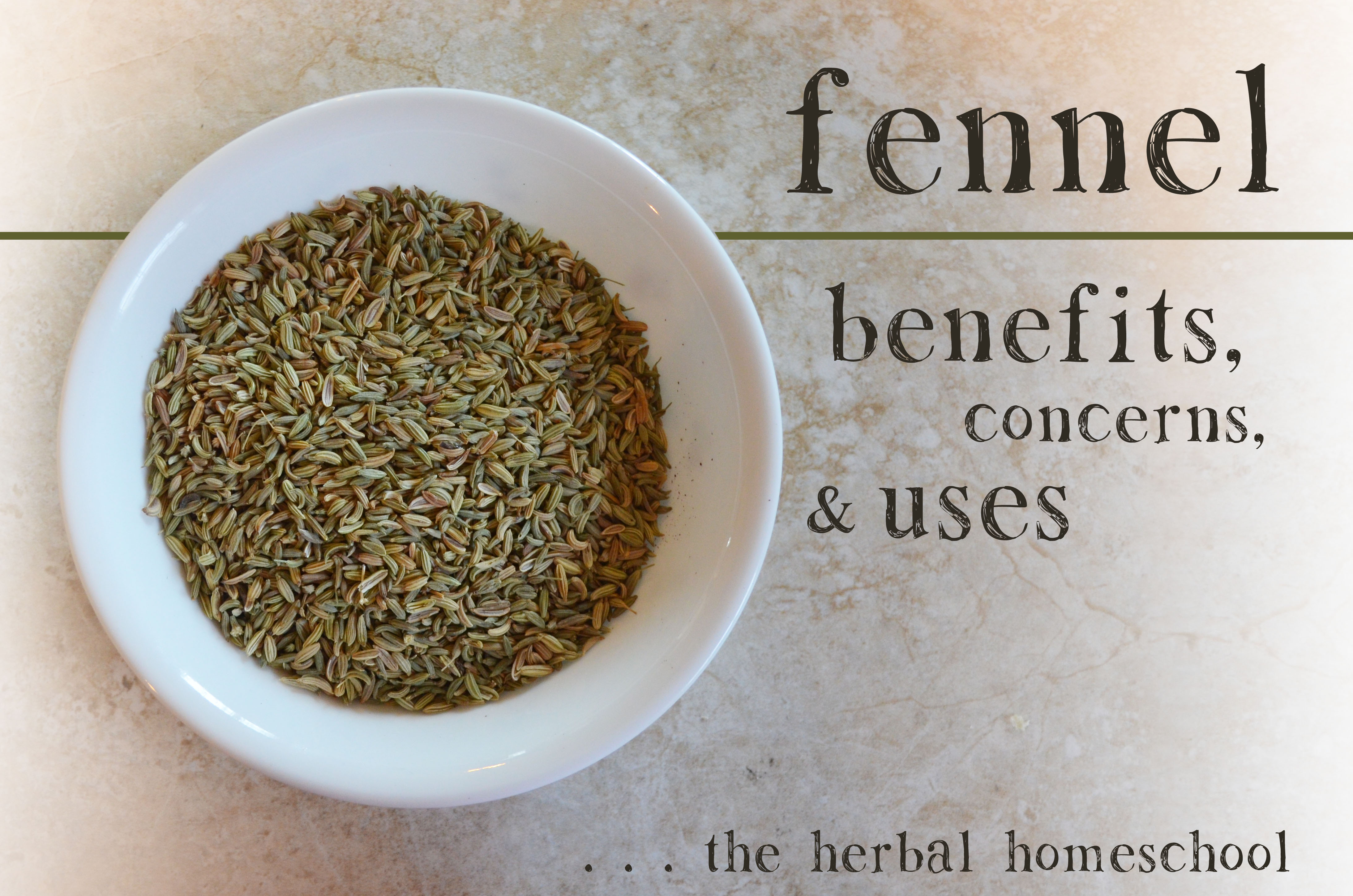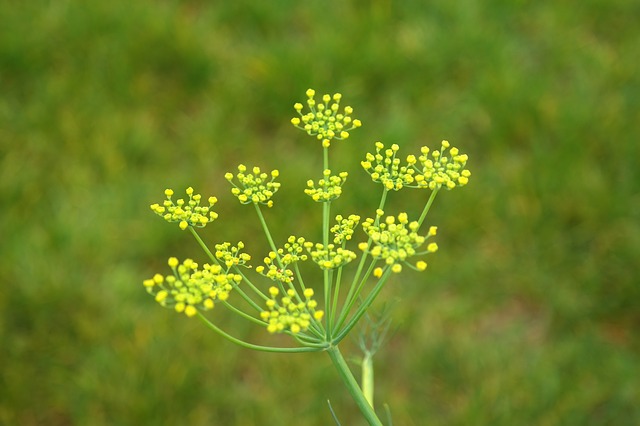Fennel: Benefits, Uses, & Concerns
 Fennel. Delicious, aromatic, soothing, and a Godsend to anyone with a colicky baby.
Fennel. Delicious, aromatic, soothing, and a Godsend to anyone with a colicky baby.
Fennel seeds have been described as one of the best herbs to use for digestive issues. It is safe enough to use for cranky babies yet gently effective enough to be described as nature’s Pepto Bismal. It is an antacid that neutralizes excessive amounts of acid in the stomach. (Herbs for Children’s Health) The seeds can be ground and made into a tea, infused into an oil to rub on irritated tummies, or taken as a tincture.
What do these little licorice scented seeds do? Prepare to be amazed . . .
Benefits
– According to the Herbal Apothecary, fennel has a carmative action that helps relieve bloating, gas, and intestinal pain.
– Fennel can be taken as a tea to ease heartburn. I tried this just last night and it worked so well I decided I needed to learn more about this little seed, which inspired me to write this post!
– Fennel can treat colic! This is huge! In a study I read about on Mercola.com, they said that it eliminated colic in 40 out of 62 babies. Anyone who has dealt with colic knows that those are very encouraging numbers! Fennel is safe for babies and totally worth trying. My daughter was an incredibly fussy baby, and we used a LOT of gripe water to sooth her little tummy. The main ingredients in gripe water are fennel and catnip, and I will be posting a recipe for homemade gripe water very soon in preparation for our next baby.
– Fennel sooths the respiratory tract and will treat a dry cough or tickly throat. (the Herbal Apothecary)
– To put it delicately, fennel is apparently a go-to folk treatment for “wind”. Hey, you may be glad to know that someday 😉
– Fennel is used to treat pinkeye by placing a cotton ball soaked in well-strained fennel tea on the eye.
– Fennel is excellent for nursing moms; it aids in increasing and enriching your breast milk supply. In her book, Herbal Healing for Women, Rosemary Gladstar recommends fennel be included in a mom’s postpartum ‘survival’ kit for just this reason.
– Fennel has estrogen-like qualities; it can be used to promote menstruation and treat amenorrhea. (herbwisdom.com)
Contraindications:
After all this amazingness, what are the concerns regarding Fennel? It can slow down blood clotting properties. (momjunction.com) This could be a concern if you have a blood disorder, are taking blood thinners, are more prone to bleeding and bruising, etc. It’s menstruation-promoting qualities also cause some concern for pregnancy regarding miscarriage. Some resources, like beingtheparent.com say that it is fine in very limited amounts. Some, like the Herbal Apothecary, say to avoid use during pregnancy because it can stimulate the uterus. Rosemary Gladstar, a very experienced herbalist, includes it in her herbal heartburn remedy for pregnant woman without giving any indication of it being harmful.
These grey areas are where you need to talk to your doctor, do your own research, take into consideration your own contraindications, and come to a decision you are confident in. Personally, I have decided to use this herb in very small amounts during my pregnancy. I am not concerned because I have found a number of resources I trust who support its use in small amounts during pregnancy, and because bleeding has not been an issue for me at all in either of my pregnancies. If you are considered high risk for any reason, or are already prone to bleeding during pregnancy, then you will probably want to avoid this. Again, part of the not so fun aspects of being adults is making sound, well researched decisions on things.
Uses

Ok, now that I have given you it’s potential problems and you have considered them in relation to your family’s particular health, how do you use them?
I find it incredibly frustrating to know that I want to use an herb, but not being able to quickly find recommended doses anywhere. So I will save you that problem by giving you the suggested amounts (for an adult- don’t forget to adjust for kids) found in The Herbal Apothecary.
– As a tincture (which we will discuss how to make soon) use 5-30 drops as needed. General rule of thumb; start small and work your way up.
– As an infused herbal oil (not an essential oil) use 1-2 teaspoons massaged into the abdomen as needed.
– As a tea, drink 1 teaspoon of ground fennel per 1 cup of water infused for 10-12 minutes. You can take 3 cups per day or as needed (for pregnancy I would not take this much, but this does match recommendations I saw for nursing moms)
The fastest, most popular way to take fennel is as a tea, so if you do not feel like reading my post on making infusions, I’ll leave you with the quick version of how to make fennel tea. Here we go . .
– Boil 1 cup of water.
– While boiling grind fennel with a mortar & pestle or a coffee grinder, Nutribullet, etc. It is best used fresh and not ground far ahead of time.
– Pour boiling water over the ground fennel in a cup. Ideally the fennel would be in a tea ball, but I make it without one and it worked fine. Let steep for 10-12 minutes
– Strain fennel out and serve. You may want to add a bit of honey, but Fennel has an amazing, sweet, slightly licorice-like taste on its own so that is probably not necessary.
And that’s it for fennel! Come spring, I will be posting some information on growing fennel outside; it’s a crazy, weedy looking perennial that grows about 6 feet tall, so it is one thing I am NOT growing inside, and will probably plant somewhere out of sight!
In the meantime, leave a comment & share how fennel has helped your family!
Disclaimer: as always, remember that I am NOT a medical professional and this is not meant to be medical advice. Always do your own research & consult a medical professional if in doubt.
